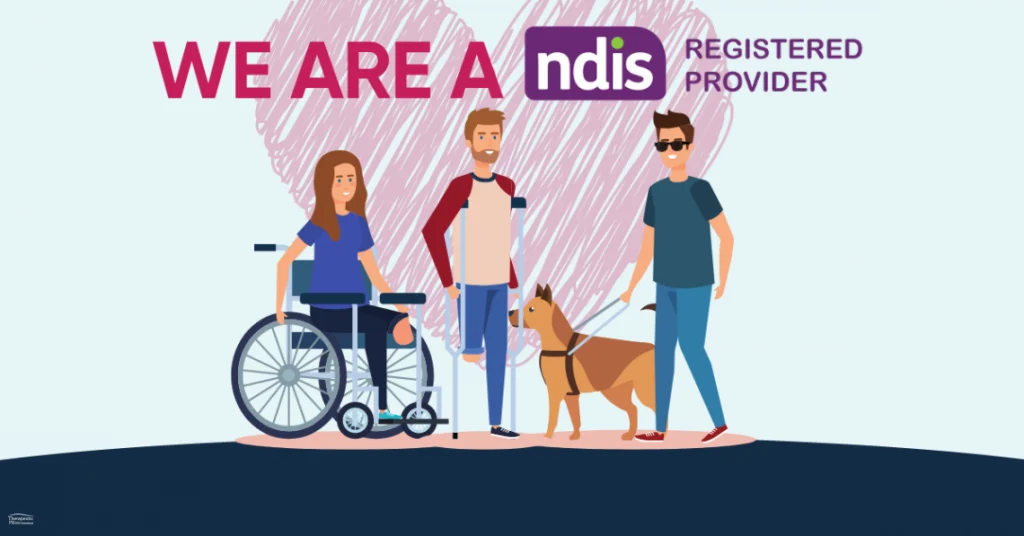There is no substitution for a good night’s sleep, and a person who is not getting one is at risk for a number of serious physical, mental, and emotional issues.
The right pillow goes a long way toward relaxing the body and relieving stress.
Sleep specialists report that providing the head, neck, and spine with the correct support keeps the airways open and helps the body relax into the deep sleep cycles that are critical for good health. Tossing and turning does more harm than a little grogginess or discomfort.
Sleeplessness & Weight Gain
People who get less sleep typically have an increased appetite, possibly due to the hormones that regulate the appetite. A tired person will have more ghrelin in the system, which causes the feeling of hunger. At the same time, there is less leptin available to tell the body that it is full. Researchers believe that this combination directly affects weight gain in people who get less than six hours of sleep each night.

Side-effects of Sleeplessness
Sallow skin, dark circles, and puffy eyes are classic signs of a poor night’s sleep. The longer a person goes without rest, the more it will show on the face. This is due to the stress hormone cortisol. Too much of it breaks down the collagen, which is what gives skin its smooth, elastic quality. Cortisol also prevents the release of the human growth hormone, and this natural body chemical is responsible for repairing tissues and undoing the day’s stress on the body.
Sleep Cycles and Sleep Deprivation
The brain does not function well without suitable amounts of rest. Functions such as attention, concentration, and problem-solving are impaired, which affects the ability to learn. Deprivation also affects the way the mind interprets events, resulting in poor judgment. The sleep cycles affect memory, too, and a person who is not able to experience the deepest levels during a cycle will have trouble transferring short-term memories to long-term.

Mental Health Risks of Sleeplessness
The longer a person goes without a full night’s sleep, the more likely it is that the individual will develop mental issues such as depression and anxiety. Unfortunately, these problems also contribute to the risk of insomnia. This turns into a vicious cycle for people who are unable to sleep six hours a night or more.
Getting back to sleep
Acute insomnia: In a lot of cases, acute, or short-term insomnia may not even require treatment. However, if your insomnia makes it hard to function during the day because you are sleepy and tired, then your healthcare practitioner may prescribe sleeping pills for a limited time.
The rapid onset and short-acting medications that are now available, avoid many of the problems of earlier medications that had continuing side effects like feeling drowsy and groggy the following day. It should be noted though, that some medications may be less effective after several weeks of nightly use. The side effects of sleeping pills and over-the-counter sleep medicines are something that needs to be discussed at length with your healthcare practitioner, as mild insomnia can often be prevented or even cured simply by practicing food sleep habits. (See "Getting into the habit" section below).
Chronic insomnia: The first step of treatment for chronic or long-term insomnia includes treating any underlying conditions or health problems that may be causing the insomnia in the first place. Then, if the insomnia continues, your healthcare practitioner may suggest behavioural therapy or medication. Be aware that most medicines that are used for sleep do have side effects and must be used in consultation with your healthcare practitioner.
Changing behaviour
Sometimes simple behavioural changes are the most effective way to help you get back in the rhythm of a good night’s sleep. Behavioural approaches to treatment focus on changing the behaviours that may worsen insomnia and focus on learning new behaviours to promote sleep.
Getting into the habit: Avoiding Sleep Deprivation
10 Good sleep habits are the first step to getting a good night’s sleep.
- Try to go to sleep at the same time each night and get up at the same time each morning. Try not to take naps during the day because naps may make you less sleepy at night.
- Avoid caffeine, nicotine and alcohol late in the day. Caffeine and nicotine are stimulants and can keep you from falling asleep. Alcohol can cause waking in the night and interferes with sleep quality.
- Don’t eat a heavy meal late in the day. A light snack before bedtime, however, may help you sleep.
- Stress-related sleeping disorders may result in teeth grinding which in turn can cause headaches. Sleeping with a dental night guard will eliminate grinding and its effects and potentially assist with the process of sleep.
- Make your sleeping place comfortable. Be sure that it is dark, quiet, and not too warm or too cold. If light is a problem, try a sleeping mask. If noise is a problem, try earplugs. Try some essential oils such as lavender in a vaporizer.
- Eliminate and 'white noise' in your room. Turn off the TV and other loud electrical appliances
- Follow a routine to help relax and wind down before sleep such as reading a book, listening to music, or taking a bath.
- If you can’t fall asleep and don’t feel drowsy, get up and read or do something that is not overly stimulating until you feel sleepy.
- If you have trouble lying awake worrying about things, try making a to-do list before you go to bed. This may help you "let go" of those worries overnight.
- Try meditation or relaxation techniques.
Health Problems Arising Due to Sleep Deprivation
Eating disorders, hormone disruption, brain function, and mental problems are not even the worst issues that are often caused by the inability to get a full night’s rest. Much more serious health problems are also often attributed to long-term deprivation. Doctors point to a lack of sleep in the development of numerous heart problems. Heart disease and failure, irregular heartbeat, high blood pressure, and stroke are all directly related to nighttime issues.

Disadvantages of an Uncomfortable Pillow
Good habits and routines often help a person fall asleep, but an uncomfortable pillow often prevents deep sleep. Pressure on the spine in the wrong places causes tension and pain and leads to tossing and turning. The right pillow supports the spine and keeps it straight. Specialty pillows help with good sleep posture and even provide relief for some issues such as apnea and insomnia. Sleep experts point to the choice of the correct pillow for good quality sleep that rests and recharges the body.
If you're in the market for a new pillow and you would like to learn what the best pillow might be for you. Click here. Therapeutic Pillow has a wide range of pillows from Memory Foam, Naturelle Latex, Traditional Foam and Specialty Pillows.
Do you want to learn more? Read our Frequently Asked Questions for...
Contour pillows, also known as contoured pillows, are designed to provide better support and alignment for your head, neck, and shoulders while you sleep. These pillows are shaped with curves and contours that follow the natural curves of your body, allowing for a more comfortable and personalized sleeping experience.
The unique design of contour pillows offers several benefits. Firstly, they help to alleviate neck and shoulder pain by promoting proper spinal alignment. The contoured shape cradles your head and neck, reducing pressure points and ensuring that your spine remains in a neutral position throughout the night. Secondly, contour pillows can improve your overall sleep quality. By providing optimal support, they help to reduce tossing and turning, allowing you to enjoy a more restful and uninterrupted sleep.
Contour pillows, or contoured pillows, are indeed better for those seeking improved comfort and support during sleep. Their unique shape and design promote proper spinal alignment, alleviate neck and shoulder pain, and enhance overall sleep quality. If you are looking for a pillow that can provide personalized support and help you wake up feeling refreshed, a contour pillow may be the ideal choice for you.
 0
0 1
1Contour pillows are designed to provide better support and alignment for your head, neck, and shoulders while you sleep. Unlike traditional pillows, contour pillows have a unique shape that follows the natural curves of your body. This helps to reduce pressure points and promote proper spinal alignment, resulting in a more comfortable and restful sleep. The contoured design of these pillows can also help alleviate neck and shoulder pain, as well as reduce snoring and sleep apnea symptoms. Overall, contour pillows offer a more personalized and supportive sleep experience, making them a popular choice for those seeking improved comfort and sleep quality.
 0
0 0
0Contour pillows can be beneficial for individuals experiencing neck pain. These pillows are specifically designed to provide support and alignment to the neck and head, which can help alleviate discomfort. The unique shape of contour pillows helps to cradle the neck and promote proper spinal alignment, reducing strain on the neck muscles. By providing adequate support, contour pillows can help relieve tension and pressure, allowing the neck muscles to relax and recover during sleep. Many people find that using a contour pillow can improve their sleep quality and reduce neck pain, making it a suitable option for those seeking relief.
Contour pillows are designed to support the neck and promote proper spinal alignment, making them a good choice for individuals experiencing neck pain. These pillows can help alleviate discomfort by cradling the neck and reducing strain on the neck muscles. By providing adequate support, contour pillows can improve sleep quality and allow the neck muscles to relax and recover. If you suffer from neck pain, using a contour pillow may be worth considering to help alleviate your symptoms and improve your overall sleep experience.
 0
0 0
0Yes, contour pillows can be beneficial for side sleepers. These pillows are specifically designed to provide support and alignment to the head, neck, and shoulders, which is crucial for maintaining a proper sleeping posture. The unique shape of contour pillows, with a dip in the middle and raised edges, helps cradle the head and neck, promoting spinal alignment and reducing pressure points. This can alleviate discomfort and prevent the development of aches or stiffness that side sleepers may experience. By offering personalized support, contour pillows can enhance the quality of sleep for side sleepers, allowing them to wake up feeling refreshed and rejuvenated.
 1
1 0
0Yes, firm pillows can be beneficial for neck pain. When you sleep on a firm pillow, it provides better support to your neck and helps maintain proper alignment with your spine. This can alleviate strain on your neck muscles and reduce discomfort. Firm pillows are especially recommended for individuals who sleep on their back or side, as they help keep the head and neck in a neutral position throughout the night. However, it's important to note that the ideal pillow firmness may vary from person to person, so it's essential to find the right balance of support and comfort that works best for you.
 0
0 0
0








